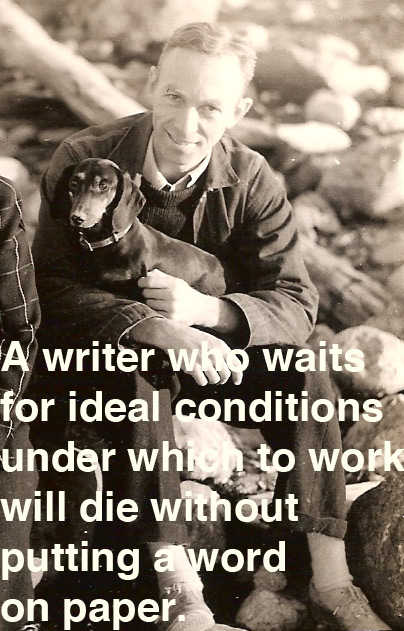(I include the trailer for students that haven't seen such '80s classic films)
To clarify, I am not serving detention. I monitor detention that runs from 7:45 to 10:30pm. The students have cut class or required work to make up. Some may have skipped one too many sit-down meals or assemblies. The list is relatively short - seven kids - in a boarding school of about 400 - not bad.
Their eyes are fixed on laptops and ipads with earbuds secured.
Their eyes are fixed on laptops and ipads with earbuds secured.
One boy falls asleep; after twenty minutes, I tap him on the shoulder and tell him to take a bathroom break and splash a little water on his face.
Truth be told: many of these students would be doing the same thing in their dorm rooms. The punishment is to sit in uncomfortable chairs in a math classroom under terrible fluorescent lighting. My eyes hurt.
Meanwhile, I contemplate grading, reading, revising plans for tomorrow's lacrosse clinic, or finishing an overdue course plan for a unique ECHO course this winter entitled: "Teaching Social Media."
(What is an ECHO Course? FYI )
So please allow me to think out loud with you.
Here's the course plan:
_______
TEACHING SOCIAL MEDIA; Social Media for Social Good
Pre-meeting sign up for Edmodo.com - in-class assignments will be shared on Edmodo.com
Take Edmodo group poll and quiz to see where the 25 students stand in terms of literacy with, and use of, social media.
Hopefully, there will be more than five veteran iMovie editors - and many students with smart phones with HD cameras.
(Exploring possibilities to partner with Mr. Gerber's video editing ECHO that will run simultaneously.)
Week 1:
Watch and Discuss the Fine Brother's viral video:
Teens React to Chilling Cyberbullying Video
"Be With" Exercise - to see one another eye to eye.
Discussion on Integrity: Who am I? An existential crisis in a world of social media.
Review privacy issues on Facebook, Twitter, and Instagram as well as personal exposure on social media.
(Re)introduce Twitter, Pinterest, Google+, and the Class Blog. Create platforms to share and learn.
For some, it will be old hat - for some it will blow their minds; therefore, partner students with a tech savvy mentor.
Things to think about: Who would you like to interview on campus or in Hudson? We will create content for our blog that the admissions office, alumni office, or deans office will likely appreciate - and share with prospective students, alumni, and current students and parents.
Course Projects: Why WRA? What makes WRA special to you? Tell your WRA story.
Week 2:
Brainstorm in groups; then, go shoot short films on smart phones - one take - no splice editing necessary.
Post to blog - and share via platforms like Facebook, Twitter, Google+.
Brainstorm longer documentaries that will require editing and more story boarding and planning.
HWK: Contact possible individuals to interview on campus and in town.
Week 3:
Continue to brainstorm and plan in groups; then, go interview individuals on smart phones.
Edit.
Post.
Week 4:
Brainstorm in groups; then, go interview individuals on smart phones.
Edit.
Post.
Week 5:
TBD - Possible field trip one week.
Week 6:
Review and showcase work.
Final discussion.
Conclude with another "Be with" exercise.
________
During the course, we will discuss and share various findings, video clips, and TED Talks.
I hope to have short visits from guest speakers both live and via Skype or Google Hangout. For example, tech savvy faculty, alumni, social media gurus, business owners, non-profit organizers, content producers, writers, etc.
FYI: I've already been tweeting @kob14 relevant links and posts using: #teachingsocialmedia #wraecho
I am guessing the students will teach me more than I can imagine right now; however, I do want to share the idea that who you "Follow" in cyberspace is just as important as it is in the real world.
Technology is a tool - how do we use it responsibly? That's the question. Imagine if we shifted the mindset from mundane status updates and cyber bullying to social media for social good.
Any feedback would be most appreciated.
(What is an ECHO Course? FYI )
So please allow me to think out loud with you.
Here's the course plan:
_______
TEACHING SOCIAL MEDIA; Social Media for Social Good
Pre-meeting sign up for Edmodo.com - in-class assignments will be shared on Edmodo.com
Take Edmodo group poll and quiz to see where the 25 students stand in terms of literacy with, and use of, social media.
Hopefully, there will be more than five veteran iMovie editors - and many students with smart phones with HD cameras.
(Exploring possibilities to partner with Mr. Gerber's video editing ECHO that will run simultaneously.)
Week 1:
Watch and Discuss the Fine Brother's viral video:
Teens React to Chilling Cyberbullying Video
"Be With" Exercise - to see one another eye to eye.
Discussion on Integrity: Who am I? An existential crisis in a world of social media.
Review privacy issues on Facebook, Twitter, and Instagram as well as personal exposure on social media.
(Re)introduce Twitter, Pinterest, Google+, and the Class Blog. Create platforms to share and learn.
For some, it will be old hat - for some it will blow their minds; therefore, partner students with a tech savvy mentor.
Things to think about: Who would you like to interview on campus or in Hudson? We will create content for our blog that the admissions office, alumni office, or deans office will likely appreciate - and share with prospective students, alumni, and current students and parents.
Course Projects: Why WRA? What makes WRA special to you? Tell your WRA story.
Week 2:
Brainstorm in groups; then, go shoot short films on smart phones - one take - no splice editing necessary.
Post to blog - and share via platforms like Facebook, Twitter, Google+.
Brainstorm longer documentaries that will require editing and more story boarding and planning.
HWK: Contact possible individuals to interview on campus and in town.
Week 3:
Continue to brainstorm and plan in groups; then, go interview individuals on smart phones.
Edit.
Post.
Week 4:
Brainstorm in groups; then, go interview individuals on smart phones.
Edit.
Post.
Week 5:
TBD - Possible field trip one week.
Week 6:
Review and showcase work.
Final discussion.
Conclude with another "Be with" exercise.
________
During the course, we will discuss and share various findings, video clips, and TED Talks.
I hope to have short visits from guest speakers both live and via Skype or Google Hangout. For example, tech savvy faculty, alumni, social media gurus, business owners, non-profit organizers, content producers, writers, etc.
FYI: I've already been tweeting @kob14 relevant links and posts using: #teachingsocialmedia #wraecho
I am guessing the students will teach me more than I can imagine right now; however, I do want to share the idea that who you "Follow" in cyberspace is just as important as it is in the real world.
Technology is a tool - how do we use it responsibly? That's the question. Imagine if we shifted the mindset from mundane status updates and cyber bullying to social media for social good.
Any feedback would be most appreciated.











